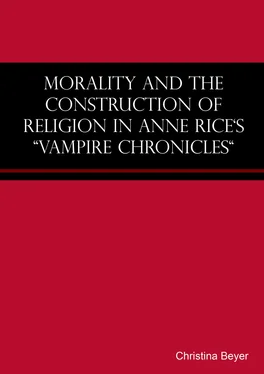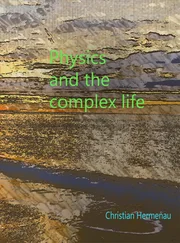This rationality is criticized by David Hume, who believes that reason alone can never motivate to action. Instead, he believes that all moral decisions have to be based upon rationality and feelings. That is why his philosophy is often described as moral sentiment. As an empirist, motives are much more relevant for him in order to judge if an action has moral value. Hume makes a distinction between natural and artificial virtues. Natural virtues are part of human nature and motivate behavior (Norton 181). As an example for natural virtues he mentions the feeling of deprecation by being confronted with murder. Only through feelings such as compassion, the meaning of a moral action is created (Hume 465). Additionally to that, Hume also believes that artificial virtues are necessary to the public good. In small groups, these artificial virtues would not have been necessary, but since human society tends to increase in number, it has become inevitable to establish general rules. Therefore, conventions that regulate property and governance had to be developed (Norton 182). Hume‘s argument is that building a society is essential for humans in order to balance the difference between their weakness to acquire sources (such as food, housing, etc.) and their need to acquire such. The society is necessary to erase this inbalance. It even improves the availability of the required goods. Furthermore, the human being needs to be in groups because it is too weak to keep the standard of living that can be sustained by staying in a group. Norton justifies this by the following explanation:
“Of all animals, individual humans appear to have the fewest natural advantages in proportion to their needs and desires. Individually, humans are weak, inept, and in constant danger of losing whatever material goods they have gathered together. Only by joining forces could these deficiencies be remedied; only by forming societies could humans add substantially to their strengths, their abilities, and their security.“ (Norton 185)
Society becomes useful by increasing power, skillfulness and safety (Hume 480). Hume uses these arguments in order to clarify property relations and laws that are concerned with it. In the context of the question if a vampire can be part of a moral community, Hume’s considerations also show something else. Regarding his definition of a social community, it mainly exists because of the humans’ inability to lead a safe life on their own. This is certainly not true for vampires, but on the other hand, they also depend on the profits of a civilized society, such as houses, coffins or money in general.
Apparently, we cannot disconnect the vampire completely from society; neither from a rationalist perspective nor from an empiristic one. For further investigations, this means that he will be treated as a part of a moral community, fully responsible for his actions; but still an outcast who does not have much in common with society, other than moral obligations. Moreover, the assumption that the vampire is necessarily connected to a community is important in the context of religion, as will be shown at a later point when the beliefs of Louis become important.
The rules of the vampire community
Rice creates own rules for her vampires. Ignoring moral obligations of a human society, it becomes more relevant for their (after-)life to follow the rules of their own community. Still, these “vampire rules“ have moral value, too. In this chapter, the focus will lie on Lestat, as Louis is not familiar with these rules and does therefore not get a chance to draw any conclusions.
In order to be able to analyze these rules, first of all, the basic ideas with which Lestat is confronted when meeting the vampire coven in Paris will be outlined. There are five rules which all vampires must obey. 1) Only the leader of a coven is allowed to make decisions upon the recreation of other vampires. 2) It is forbidden to make vampires out of disabled people or children. 3) Old vampires shall not create new ones because they are too strong. Therefore, the new fledgling might become a dangerous threat, due to the gain of powers he cannot yet handle. 4) Murder among vampires is forbidden. Only the coven master may decide upon executions. These decisions are relevant for old and mad ones and “vampires who are not properly made“. Furthermore, breaking the law will also be punished with death. 5) It is forbidden to tell mortals about the vampire’s existence. That is also valid for written works. (The Vampire Chronicles Collection 739-740)
It does not come as a surprise that Lestat breaks every single one of these rules before he even gets to know them. He says about his crimes: “Well, it gave me a wondrous satisfaction to do it. And after all, I had never been very good at obeying rules.“ (Lestat 762) Lestat’s unwillingness to live according to rules can be explained by two reasons. First, he, having been made by an old vampire, knows things about past times which nobody else has even an idea of. Therefore, without ever having lived in another century, Lestat knows that moral values change over time and are nothing fixed that can count for either true or false: “You must know that the forms of goodness change with the ages, that there are saints for all times under heaven.“ (The Vampire Chronicles Collection 650)
Secondly, the time in which he is born is full of changes in society, as will be arguea later on by giving an outlook on the French Enlightenment, a period in which philosophy gained importance and morality was regarded as a matter separated from Christianity. Lestat even explains his point of view by saying:
“And so it is with evil, obviously. It changes its form. How many men in this age believe in the crosses that frighten your followers? Do you think mortals above are speaking to each other of heaven and hell? Philosophy is what they talk about, and science! What does it matter to them if white-faced haunts prowl a churchyard after dark? A few more murders in a wilderness of murders? How can this be of interest to God or the devil or to man?“ (The Vampire Chronicles Collection 650)
These two factors of inheriting Magnus’ knowledge as a legacy and being a child of the 18th century serve as an explanation for Lestat’s extraordinary ideology concerning rules and his inability to adjust to them. Additionally to that, his rebellious character sets him apart from the law-abiding rest of the coven. Noll points out that Lestat serves as a vehicle to reveal the nonsensical nature of some moral values that are taken for granted by most.
“Rice’s vampires – and in particular Lestat, who demonstrates the falsehood of the rigid social and moral codes of the Parisian coven of vampires in The Vampire Lestat – are a law unto themselves and, like so many today, twist and bend their boundaries of sanity and morality to adapt to raw life. To Anne Rice’s readers – that is, to us – Lestat offers the amoral, polymorphously perverse, bond-breaking path of pure genius as the way of eternal life.“ (Anne Rice Reader, Noll 149)
Therefore, limitations of his vampire strengths for the sake of rules cannot be accepted by him and he asks: “Why in the name of hell, (...) did the devil give you beauty, agility, eyes to see visions, minds to cast spells?“ (The Vampire Chronicles Collection 643) It is unacceptable for Lestat to restrict himself to something so evanescent as morality appears to be in his eyes. Moreover, he cannot accept having to hide. He expresses his thoughts to Armand:
““Think of it, Armand, (...) Why should Death lurk in the shadows? Why should Death wait at the gate? There is no bedchamber, no ballroom that I cannot enter. Death in the glow of the hearth, Death on tiptoe in the corridor, that is what I am. Speak to me of the Dark gifts – I use them. I’m Gentleman Death in silk and lace, come to put out the candles. The canker in the heart of the rose.“ (The Vampire Chronicles Collection 652)
Читать дальше









